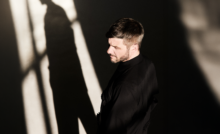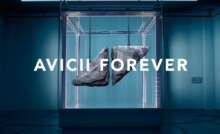

In this candid and riveting interview, Dutch DJ and producer Tony Junior takes us on his incredible journey from a rock music teenager to becoming one of the biggest names in EDM and the Hardstyle scene.
We dive deep into how Tony’s passion for electronic music was ignited after discovering the raw power and energy of hardstyle. He opens up about making the transition from playing in rock bands to immersing himself in EDM production and performing at the biggest festivals like Tomorrowland, Defqon.1, and more.
I want to start off first, can you tell us a little bit about who you are, where you’re from and what it is that you do.
All right. This is always fun to do. I think it’s always very hard to talk about myself, but my name is Tony. Born and raised in Holland, in Utrecht. I’ve been a drummer. I was always in music. That was my only option in life, I guess. I started playing in bands when I was like 10 years old. I made a switch from being a drummer to making electronic dance music in, let’s say, 2011, 12.
And I’m 34 right now and living life with music.
Do you have an earliest memory that really drew you into music? Or how did you become a drummer? You just picked up some drumsticks and started banging around in the house?
The thing is my father was a famous drummer here in Holland in a Dutch band. It was called Het Goede Doel. And for me, it was super logical that I would play the drums like my dad, because I was like one year old and my mom would hold me and had a small drum kit for me, and I was already playing and fooling around with it. So, the moment I had conscience, I knew I’m going to be a drummer. It’s the only thing I like.
It was like Pokémon and playing the drums. That was my whole youth and after a couple of years in school, I quit high school when I was 12 years old. So, everyone saw like, all right, this kid needs to be doing what he wants to do, not like doing mathematics or history class, whatever. He’s good to go.
How did you go from playing rock music to becoming a DJ? What did that transition look like for you?
That was, to be honest, one of the most important moments in my life because that flipped it all around. I had this pop rock band. I played for almost eight to nine years and that started when I was like 10. So those guys were like 10 years older, but they were my best friends. So, for years and years, we did a lot of shows.
We recorded albums and EPs and when I was around 21 years old, that band split up. We got into a musical fight and we were never able to fix that. So suddenly one night, I lost my best friends and my reason to wake up in the morning because my life was playing the drums with my band and making new songs and just hanging around and being together. And then one day it was just simply, boom, it was gone.
So, then I got super addicted to playing Call of Duty. I played Call of Duty for one year, like almost professional. I played 12 hours a day and suddenly I came to like realization when I went to my first house party in Utrecht here. It was a show with Sunnery James, Ryan Marciano, Leroy Styles and Melvin Reese. And I was like, holy s***, this is what I’m going to do. I’m going to sell the Xboxes and I’m going to make music on my own because I cannot have fights with band members and have issues about money.
It’s going to be around me and I can decide everything. So that moment, like when my band split up and that year doing nothing, changed my life until now.
Sunnery James and Ryan Marciano are kind of Big Room House, mainstream EDM, you would say. Did you decide to take that route first? What made you decide on that specific subgenre of music?
I’m going to feel like almost old with saying this, but in the time, I started, it was a little simpler. EDM wasn’t a term yet. It was just House music.
Everything was house music. And you had like, you had Trance, you had Hardstyle and Hardcore, but like Sunnery James and Ryan Marciano or those guys, but you also had like the Swedish House Mafia. They were just House. My first party was the party where they played a lot of Latin House. And that got me. But within a couple of months, I became a big fan of the Swedish House Mafia and Avicii. Back then it was Progressive House and that was like what we call Big Room-ish now. So, like the old Swedish House Mafia and Avicii stuff.
You had Latin House, you had like the Dutch House, so the old Afrojack stuff. I felt the most connection with Latin House and normal House first. So, I just started producing that because that’s what I heard and had a party with. I was like, I’m going to make this music. That’s what I love. And later, like months of producing and locking myself into the studio, I started to love Big Room House as well. From 2015, I became a Big Room EDM DJ. It’s interesting, the evolution of the genres.
Would you define your music then at the time as Latin house, or would you just say a default?
No, the Latin House, that was a time that I produced a lot of music, but it never was good enough to release. So, when I started making electronic music in 2011 or 2010, 11-ish, I locked myself up in the studio literally for three years, doing nothing, no drinking. I never did drugs and not going out, just making music, music, music. In those three years, I accidentally scored like a number one hit here in Holland. I made like a remix of an old Dutch song from the 30s, and that became a number one hit.
Suddenly I was all over the radio and people and clubs were booking me, and they didn’t even know what I was. Was I a dancing act? Was I a DJ? Was I whatever, a live act? So, the Latin House was something I liked to play during those shows. I produced, but after a couple of years when my music evolved, it got good enough, and I got signed to Spinnin’ Records.
But before that, I had like random releases on random labels, and I was super f******g happy that I got a release. So Latin House, it’s definitely rooted in my electronic music taste. But I didn’t make it a lot that came out so that the public could hear it. That makes sense.
How did you discover hardstyle? Have you always like hardstyle? How did you go to kind of what the music you’re doing now?
Like for me, I never say I’m Hardstyle. I always say the Harder Styles because I’m not Hardstyle. I make it, but I can do like a Hard Techno song as well. But I always flirted during my sets with the Harder Styles and Hardstyle.
If you look back to my old releases, like Immortal or Nobody Beats the F*****g Drum, those are kind of old school Hardstyle songs, but just 20 BPM lower. So, and during my sets, I played the last 20, 30 minutes was Hardstyle because I love to play it. And sometimes I made like a bootleg or, but I never like said in my career, okay, it’s going to 130 BPM to 150 BPM.
And that’s what happened now. So, I always was busy with Hardstyle already. Like when I started, you had like, you had House music and like Latin House, Minimal House, Tech House. You had Techno, you had Dubstep, Jungle, whatever, Trance. And now everything is so blended that Techno is almost early Hardstyle.
So, it’s coming so close, like music wise. So early old Hardcore is almost Techno from now, you know? So, in the Techno scene, all the credible people are playing show Tech songs. So, it’s a super interesting time.
And that’s why I never said I am this, or I am EDM or I am whatever. And what happened a couple of years ago was what we call EDM. I never put myself into like I am EDM or I am Hardstyle or whatever. So, I just like put it up 20 BPM around 150. And a couple of weeks ago, I did an Uptempo song with a friend of mine called Rosbeek. I’m doing some harder Techno songs and I make what I like to play. And that’s the thing. I don’t want to be credible Hardstyle like Headhunterz or Brennan Hart or Wildstylez. I just like the music and when people like it, I’m a happy man. And when people don’t like it, I’m a happy man as well.
When you’re talking about haters, how do you respond to hate online? And how do you respond to those people? How would you respond to those kinds of haters?
If you don’t have haters, you’re not doing a good job. The more people who hate you, there’s also people that love your stuff and I was on television in Holland a lot. That’s like a side thing that started a couple of years ago that I didn’t even want, but they just asked me for like television programs and asked me for The Bachelor and Exhibition Robinson. So, I’m experienced when it comes to getting hate on social media, because when you do something on TV, let’s say you give a rose in The Bachelor to a girl that the whole world doesn’t want you to give it, everyone’s going to hate on you.
And with music, it’s interesting because my music is my baby. I spend time making them, producing them, playing them. So that hurts a little bit more.
The people that hate will listen to your music as well, probably. I don’t really care. And genre-wise, for example, in the Hardstyle industry, they are very protective about their genre. And I get that, because I was on a podcast a couple of months ago, and I spoke with a lot of people, because there were people that thought I would enter the Hardstyle industry and wanted to be credible. And people think of that like, no, f*** off. It’s our industry.
But I get why they are that protective because they feel like it’s their genre. It’s like 10 years ago, they were like maybe outsiders loving to rave with Hardstyle or Hardcore. And they think that people didn’t like those sub-genres or people that went to hard sell festivals.
So, they’re like if you didn’t like us back then, don’t like us now. Don’t touch us. So, they’re protective and I respect that a lot. So, I understand that they maybe can hate on me, because I’m making songs with like Brandon Hart or Coone, or Da Tweekaz. But there’s a lot of people that like Hardstyle as well.
And they’re like, oh, I like the song, whoever the f*** it is. And you see that with a lot of genres, I think people are always scared that it goes too commercial and it isn’t cool anymore to like a kind of genre, I guess. It goes too mainstream. So, I’m super cool and super chill with that. That’s why I never say I am Hardstyle. I am Harder Styles.
F****g love it or hate it. I don’t care.
This interview was originally published on the Drop Bass Not Bombs podcast and an excerpt has been transcribed for this article
Recent Posts
KAAZE: The Evolution of “Hot Tekno” – A Journey from Underground to Mainstream Success
KAAZE: The Evolution of "Hot Tekno" - A Journey from Underground to Mainstream Success In…
New 24-Hour Venue Brixton Storeys Set To Launch
Brixton has always had a bustling music scene and now it’s got a new addition…
Matador Talks His 2025, Evolution Of Sound, ‘SIRENS’ & More
It’s been a year of reinvention for Matador, the genre-blurring producer whose journey from minimal…
Avicii Compilation Album Releasing With New Music
This year has already seen the release of the 2016 Ibiza Version of Avicii and…
SHANGUY & NRD1 Release The Electrifying ‘J’ai compris combien je t’aime’
Tankfloor/Warner Music Italy proudly presents the highly anticipated release of SHANGUY’s latest single, 'J’ai compris…
Germany’s Leading Open-Air Festival NIBIRII Completes Lineup For 2025
Germany’s number 1 club Bootshaus Cologne is once again back with its jaw dropping NIBIRII…


